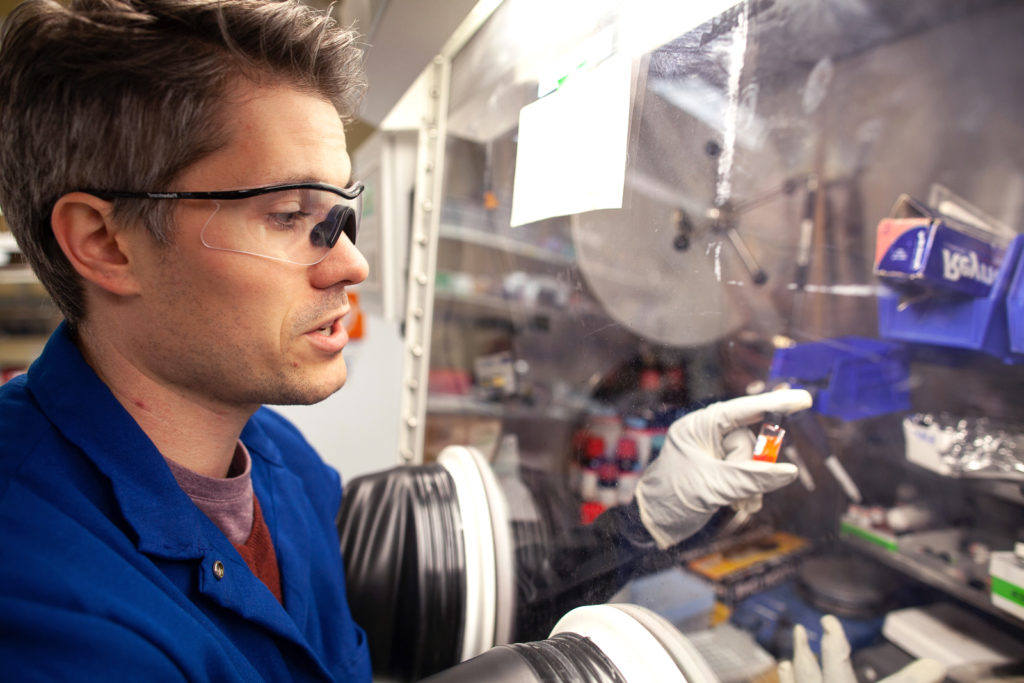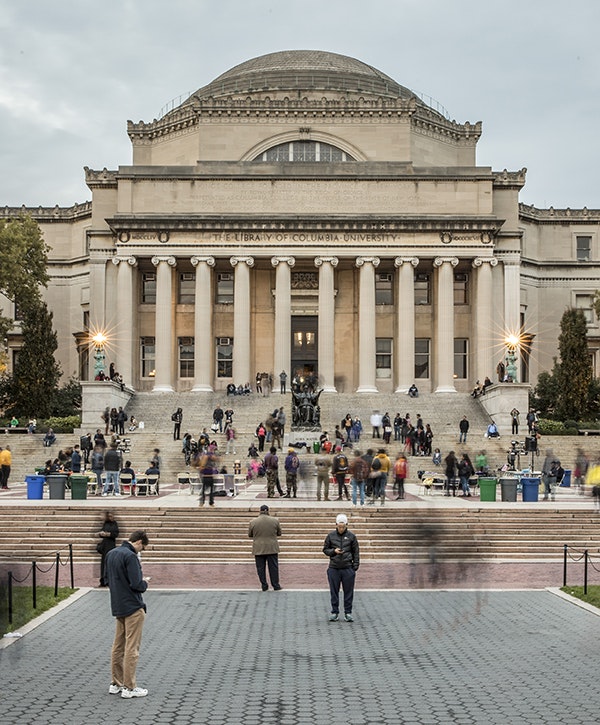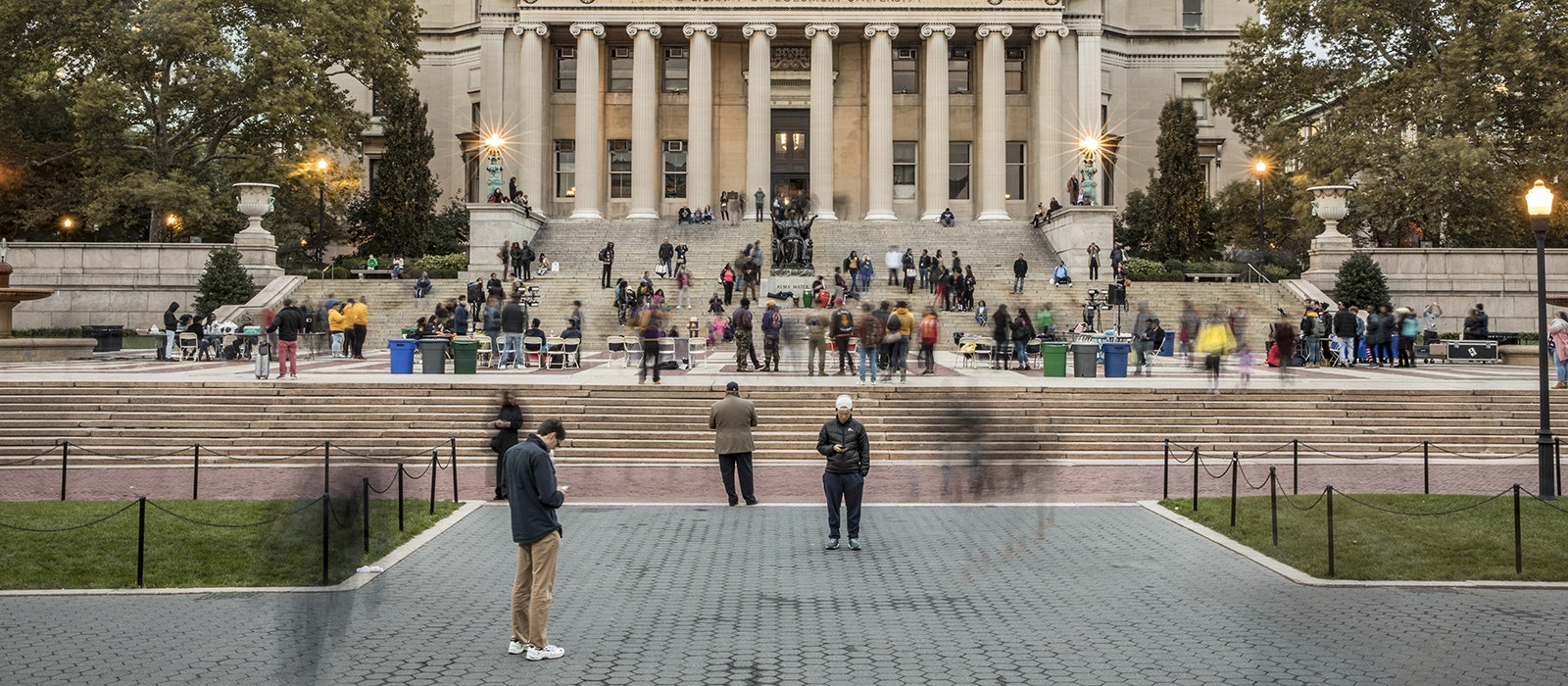Every year, more than 1 million students from around the globe earn their higher education at colleges and universities in the United States. Optional Practical Training (OPT) allows graduates to gain valuable hands-on experience and begin contributing their education and training to the U.S. immediately. Without OPT, most international graduates would have no choice but to leave the U.S. and contribute their skills to our global competitors. Protecting the option of OPT for international graduates is critical to attracting, educating and retaining promising talent from around the world.
5 Things to Know About Optional Practical Training (OPT) for International Students
"OPT is an important but imperfect bridge, allowing graduates an opportunity to develop their skills and build relationships with potential employers while determining their future immigration options. "
1| Faced with limited immigration options, OPT is the primary way international graduates gain U.S. work experience and enter the jobs pipeline
It is incredibly difficult for international graduates to earn a green card if they would like to permanently live and work in the U.S. The F-1 student visa does not allow for “dual intent,” meaning immigrants cannot come on an F-1 visa to study if they also plan on moving to the U.S. permanently, but instead have to apply for a different visa after completing their studies.
After their F-1 status expires, graduates might look for an employer to sponsor them for a green card or a temporary skilled work visa like an H-1B. Even when employers would be willing to sponsor someone for a green card right out of college, excessive backlogs make it prohibitively difficult, so the H-1B temporary work visa is often the only option.
But the low annual supply of H-1Bs is consistently outstripped by demand, leaving applicants with a roughly one in three chance of even having their application read. And even if they secure the H-1B, those graduates will still have to wait in backlogs, potentially for a decade or more, if they want to secure a green card and eventually pursue citizenship.
Optional Practical Training (OPT) is an important but imperfect bridge, allowing graduates an opportunity to develop their skills and build relationships with potential employers while determining their future immigration options. It does not ultimately provide a clear path to permanent residency on its own, but it can give them time and experience to navigate the limited options available.
180,000United States Citizenship and Immigration Services (USCIS)
Roughly the number of initial and renewal work authorization applications for OPT approved in FY 2020.
2| International graduates of U.S. universities use OPT to live and work in the U.S. on a temporary basis
OPT allows international students who are studying at or have graduated from U.S. universities and colleges to remain in their F-1 student status and be authorized to work for a U.S. employer in their field of study. Students in any field can secure “post-completion” OPT for up to 12 months, while those with a degree in science, technology, engineering or math (STEM) can get a two-year “STEM extension” for a total of 36 months.
With OPT, graduates apply their education in a real-world setting, gaining valuable work experience and further developing their skills here in the U.S. This work experience is critical as recent graduates develop their skills and begin defining their career trajectory.
In FY 2020, slightly more than 180,000 OPT initial and renewal work authorization applications were approved. Of these, about 130,000 were for post-completion OPT and just over 50,000 were for the STEM extension. Most OPT participants have degrees in technology, engineering, or business, and more than half have master’s degrees.
 Wojciech was a Ph.D. candidate at UC Berkeley. With OPT, he was able to begin working after he graduated, and was able to put his education to work tackling global climate change. Because of limited immigration options, his future in the U.S. is far from certain. Read Wojciech's story here.
Wojciech was a Ph.D. candidate at UC Berkeley. With OPT, he was able to begin working after he graduated, and was able to put his education to work tackling global climate change. Because of limited immigration options, his future in the U.S. is far from certain. Read Wojciech's story here.
$28 billionNAFSA International Student Economic Value Tool
contributed annually by international students
300,000 jobs
direct and indirect jobs created/supported as a result of the economic benefit of international students
3| Americans benefit when international graduates stay and work in the U.S.
When international students are allowed to work and contribute, everyone benefits. International students contributed $28.4 billion to the U.S. economy and supported more than 300,000 jobs in the 2020-2021 academic year. Experts have found that high numbers of OPT participants in a region are associated with higher earnings and lower unemployment for certain U.S. workers. By contrast, the Business Roundtable estimates that curbing OPT could cost 443,000 jobs over a decade, including 255,000 jobs held by native-born workers, and cause declines in hourly wages and GDP.
The potential for hands-on training and a pathway to future employment is essential in attracting and retaining highly-skilled international students at a time when countries like Canada, Australia, China and India (who offer their own post-graduate work programs) are competing to attract that talent for themselves. OPT also gives U.S. employers an opportunity to evaluate recent graduates as future employees and contributors (DHS notes that many OPT employers end up sponsoring graduates for visas).
Maintaining the ability for talented individuals to live and work in the U.S. is particularly important in STEM-related fields where employers compete globally for the best talent in the world, and face a consistent scarcity of qualified available workers (the manufacturing industry alone is projecting over 2 million unfilled jobs in the next ten years because of a lack of qualified workers). The sectors with the highest share of OPT workers include universities and educational institutions, healthcare providers like hospitals, manufacturing, banking and financial firms, and technology companies.
4| Attacks on OPT are misguided and harmful
While OPT is crucial to training and retaining these international students, advocates for restricting or ending legal immigration continue to attack the program. A small number of lawmakers filed legislation in the previous Congress to end OPT entirely, while rumors circulated that the previous administration was eyeing major restrictions to OPT and the STEM extension, though strong opposition from the business community and Republican leaders in Congress appeared to shut down this effort.
Meanwhile, the U.S. District Court for the District of Columbia recently ruled in WashTech vs. DHS, a case brought by members of the Washington Alliance of Technology Workers Union who argue OPT is unlawful (they are represented by John Miano, a Fellow at the hardline anti-immigrant Center for Immigration Studies). The judge ruled in favor of preserving OPT, but the plaintiffs have appealed the decision yet again. Though the plaintiffs have fought this case for over a decade and the courts have found in favor of OPT multiple times, the restrictionists continue to challenge, seeking an end to the entire program, which would be devastating for hundreds of thousands of individuals seeking to study and work here, and for our economy.
FWD.us led more than 60 other U.S. employers, trade associations, and business organizations in filing an amicus brief in support of OPT in the case. You can read our statement here, and read more about the brief and signers here.
“In addition to protecting OPT against restrictions or elimination, Congress must also take steps to address the underlying issues making it harder for the U.S. to recruit and retain top global talent”For more, read the FWD.us and Orrin G. Hatch Foundation joint report, "Barriers to recruiting and retaining global talent in the U.S."
5| OPT is just one part of a complicated immigration system
OPT is vital to developing our future high-skilled workforce, and its importance is magnified by the broader broken immigration system. In addition to protecting OPT against restrictions or elimination, Congress must also take steps to address the underlying issues making it harder for the U.S. to recruit and retain top global talent.
Only Congress can fix the insufficient supply of visas, the most fundamental barrier for retaining international graduates. The low annual visa numbers make it impossible to match tens of thousands of skilled workers to open jobs that employers struggle to fill. While OPT can help place skilled graduates in the short-term, they need to secure one of these coveted visas in order to stay. Those who don’t are forced to take their skills elsewhere.
While OPT should remain an option for graduates who will likely return after their studies, Congress should also create a post-graduate work visa for students to start the green card process and begin working and contributing immediately after graduating. Congress should increase both the number of high-skilled H-1B visas and the number of green cards (particularly for employment-based immigrants) available each year. The decades-long green card backlogs need to be cleared, and per-country caps eliminated. Finally, Congress should provide additional avenues to permanent residency by allowing F-1 visa holders to hold “dual intent,” and should establish specific green card options for graduates of U.S. schools, as well as a startup visa for aspiring entrepreneurs.

